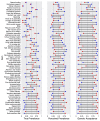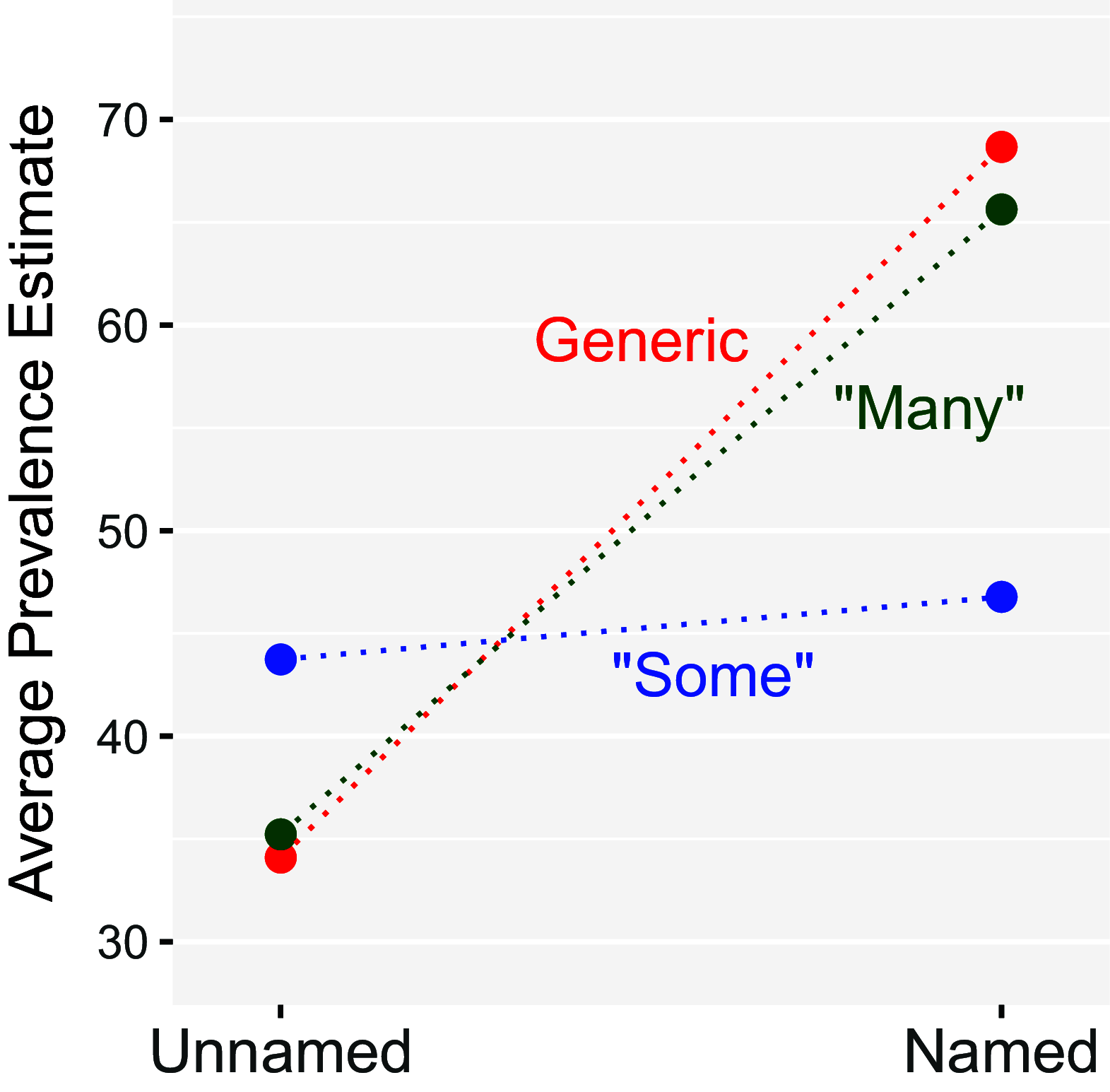Generically partisan: Polarization in political communication
- PMID: 37956300
- PMCID: PMC10666007
- DOI: 10.1073/pnas.2309361120
Generically partisan: Polarization in political communication
Abstract
American political parties continue to grow more polarized, but the extent of ideological polarization among the public is much less than the extent of perceived polarization (what the ideological gap is believed to be). Perceived polarization is concerning because of its link to interparty hostility, but it remains unclear what drives this phenomenon. We propose that a tendency for individuals to form broad generalizations about groups on the basis of inconsistent evidence may be partly responsible. We study this tendency by measuring the interpretation, endorsement, and recall of category-referring statements, also known as generics (e.g., "Democrats favor affirmative action"). In study 1 (n = 417), perceived polarization was substantially greater than actual polarization. Further, participants endorsed generics as long as they were true more often of the target party (e.g., Democrats favor affirmative action) than of the opposing party (e.g., Republicans favor affirmative action), even when they believed such statements to be true for well below 50% of the relevant party. Study 2 (n = 928) found that upon receiving information from political elites, people tended to recall these statements as generic, regardless of whether the original statement was generic or not. Study 3 (n = 422) found that generic statements regarding new political information led to polarized judgments and did so more than nongeneric statements. Altogether, the data indicate a tendency toward holding mental representations of political claims that exaggerate party differences. These findings suggest that the use of generic language, common in everyday speech, enables inferential errors that exacerbate perceived polarization.
Keywords: American politics; generic language; political communication; political polarization; psychological research.
Conflict of interest statement
The authors declare no competing interest.
Figures




References
-
- Abramowitz A. I., The Disappearing Center: Engaged Citizens, Polarization, and American Democracy (Yale University Press, 2010).
-
- Abramowitz A. I., Saunders K. L., Is polarization a myth? J. Polit. 70, 542–555 (2008).
-
- Fiorina M. P., Abrams S. J., Pope J. C., Culture War: The Myth of a Polarized America (Pearson Longman, 2005).
-
- Hare C., Poole K. T., The polarization of contemporary American politics. Polity 46, 411–429 (2014).
-
- Iyengar S., Sood G., Lelkes Y., Affect, not ideology: A social identity perspective on polarization. Public Opin. Q. 76, 405–431 (2012).
MeSH terms
LinkOut - more resources
Full Text Sources
Miscellaneous

